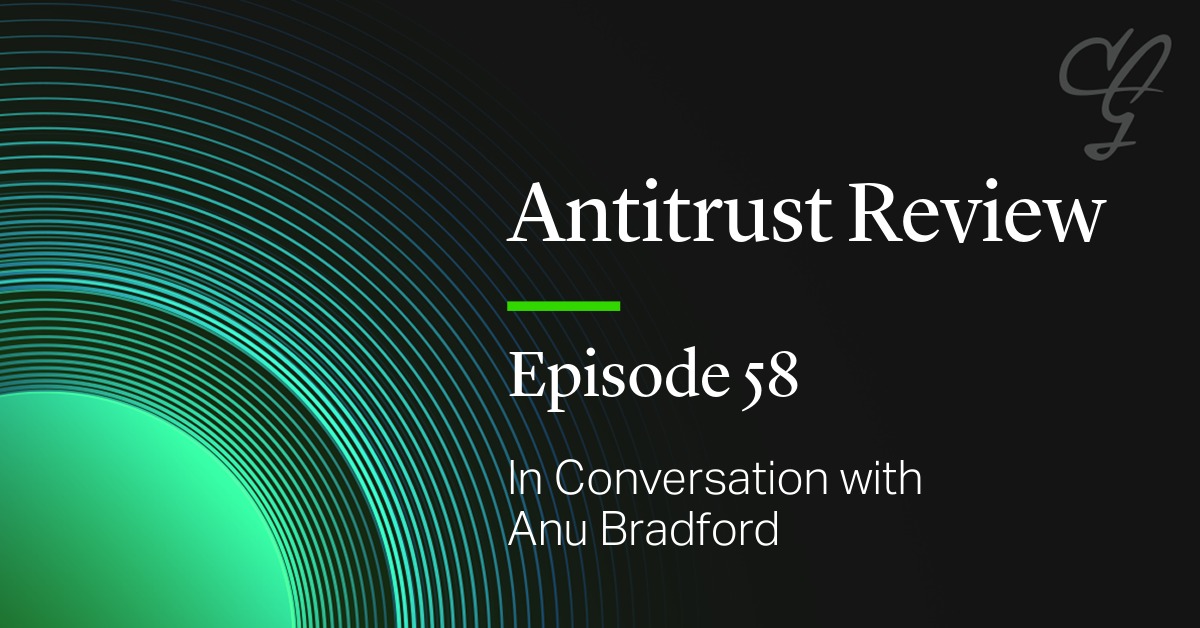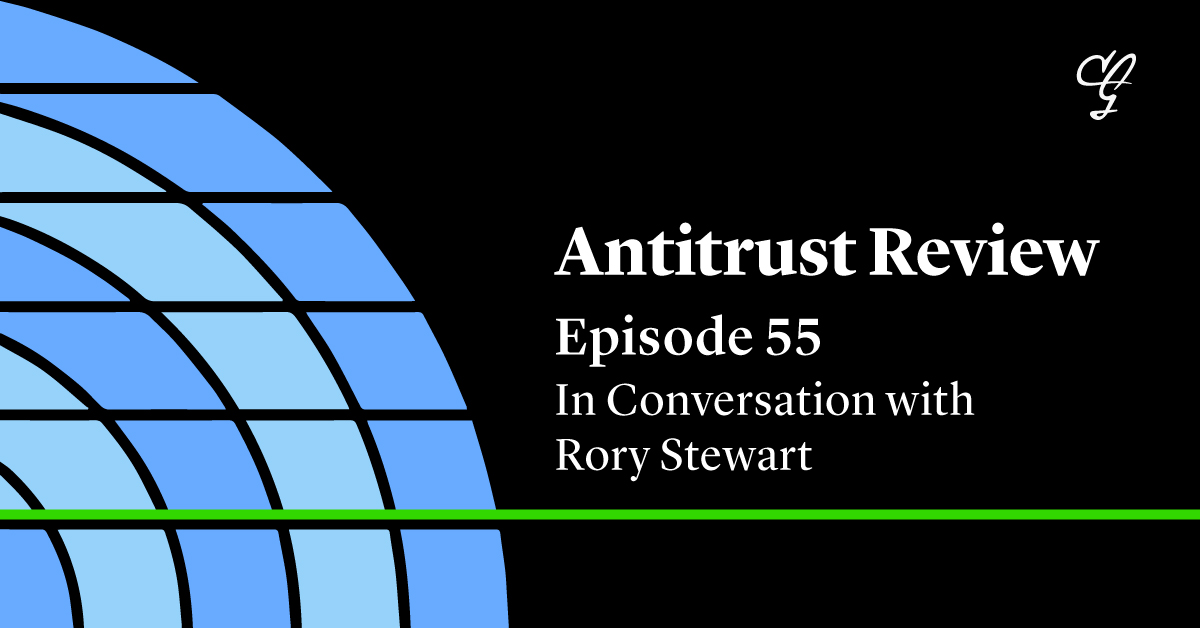In the latest instalment of Cleary Gottlieb’s Antitrust Review podcast, host Nick Levy is joined by Anu Bradford, Professor of


In the latest instalment of Cleary Gottlieb’s Antitrust Review podcast, host Nick Levy is joined by Anu Bradford, Professor of…

In the latest instalment of Cleary Gottlieb’s Antitrust Review podcast, host Nick Levy is joined by a panel of lawyers…

In the latest instalment of Cleary Gottlieb’s Antitrust Review podcast, host Nick Levy is joined by a panel of lawyers…

According to the German Ministry of Economics, the “German Gatekeeper Rule”[1] has proven to be an effective means of ensuring fair competition on digital markets. In its Evaluation, published earlier this month,[2] the Ministry praised the Rule for improving market conditions in the technology sector and promoting innovation and competition since it came into force four years ago. Describing it as a “valuable supplement” to the European Union’s set of gatekeeper rules in the Digital Markets Act (DMA), which has since been introduced, the Evaluation sees no need for further adjustments or harmonization. The requirement for an evaluation after four years was enshrined in the 2021 legislation, which mandated that the Ministry of Economics take into account relevant developments at the European level in its assessment of the Rule.[3]

The following is part of our annual publication Selected Issues for Boards of Directors in 2026. Explore all topics or download the PDF.
Antitrust in 2025 was marked by policy developments and antitrust enforcement that, while remaining aggressive, became less overtly anti-business. The U.S. continued a number of cases from the Biden administration, but became more open to settlements, while continuing implementation of the new and more burdensome HSR merger notification form and of the more aggressive and less economically focused 2023 Merger Guidelines. The European Commission conducted a series of DMA enforcement actions and launched a broad-sweeping consultation on the Merger Guidelines. The UK CMA continued a tack toward a more restrained approach to enforcement, taking greater account of growth and suggesting it would allow greater flexibility in merger remedies. The Chinese State administration for Market Regulation started to intervene in transactions below the filing thresholds and continued to keep antitrust in its toolbox for tackling geo-political tensions.

On January 9, 2026, the European Commission published long-awaited guidelines on its enforcement of the Foreign Subsidies Regulation (“FSR”) (the “Guidelines”).[1] In addition to delineating the FSR’s jurisdictional scope, the Guidelines clarify three key concepts: (1) when a foreign subsidy distorts competition; (2) how a distortion’s negative and positive effects are balanced against each other (the “Balancing Test”); and (3) when the Commission may use its so-called “call-in powers” to request the prior notification of transactions and public bids that fall below the mandatory FSR thresholds.

On January 14, 2026, the French Senate approved a bill[1] extending the scope of legal privilege to consultations of in-house lawyers for the first time (the “Bill”).

In the latest instalment of Cleary Gottlieb’s Antitrust Review podcast, host Nick Levy is joined by Rory Stewart, one of…

2025 was a fascinating year for UK competition and consumer enforcement, with the CMA changing its policies and practices in a number of areas. Our Year in Review summarises the most important developments of the past year and what we expect in 2026, as the CMA implements its reworked procedures for merger and market cases, begins to use its new consumer fining powers, and imposes digital conduct requirements for the first time. We also anticipate a Government consultation on significant changes to the decision-making model for mergers and markets.

On December 12, 2025, the Digital Markets Act (“DMA”) High-Level Group (“HLG”)[1] endorsed a joint paper on the regulatory interplay on AI-related issues.[2] This paper assesses how to best implement the different legal frameworks that govern AI systems. It underlines the importance of achieving a coherent and consistent implementation of these frameworks and of the cooperation between competent authorities to achieve it.
WE VALUE YOUR PRIVACY
This site uses cookies and full details are set out in our Cookie Policy. Essential Cookies are always on; to accept Analytics Cookies, click "I agree to all cookies." Learn more about cookies.